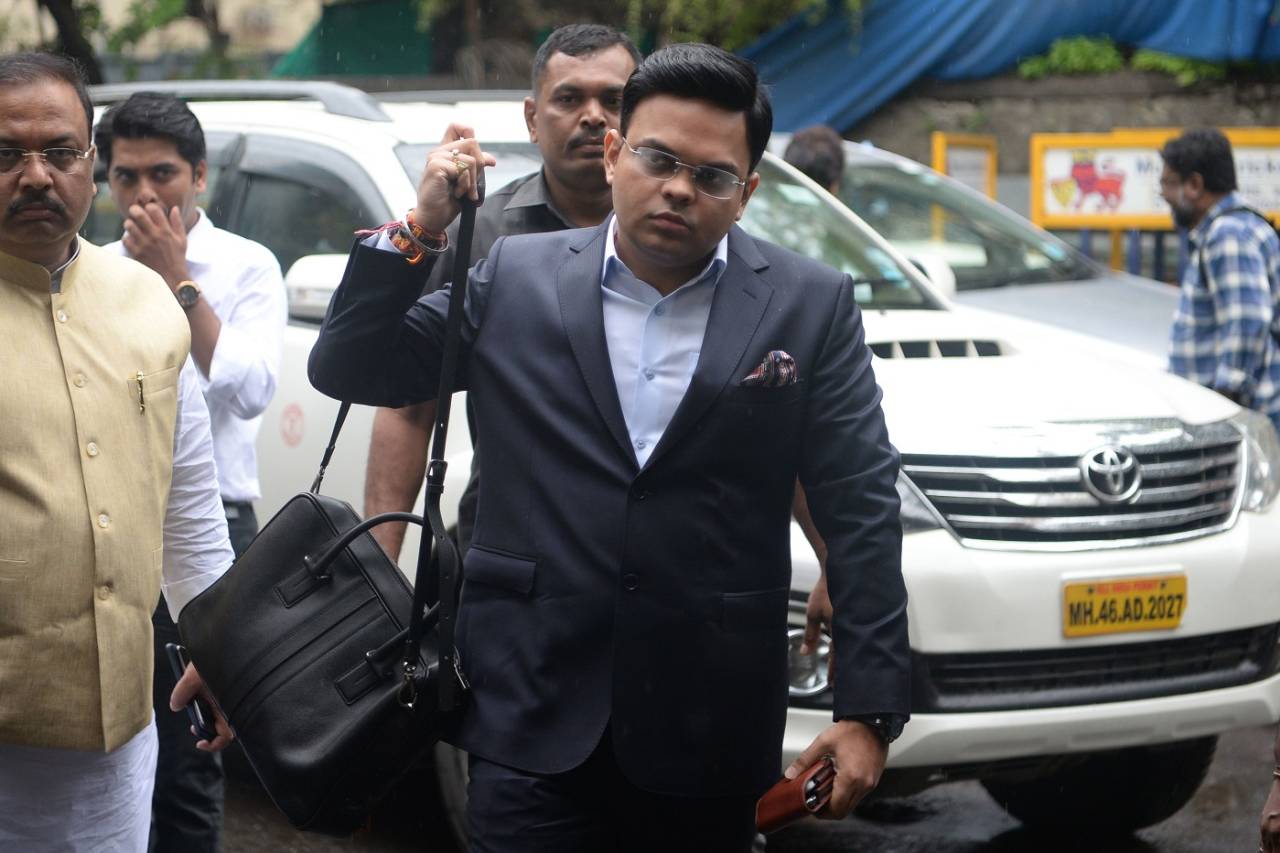Relieve us from BCCI role, CAG asks Supreme Court
Says it is unable to perform its role as independent member on Apex Committee
Nagraj Gollapudi
08-Jul-2020

Getty Images
The Comptroller & Auditor General (CAG) of India has asked the Supreme Court to relieve its nominee from the BCCI's Apex Committee, on the grounds that it is "unable" to function as an independent voice and carry out the primary job assigned to it: to provide financial oversight to the BCCI and the state associations. This move has come soon after its representative on the panel raised questions this week over the attendance of BCCI secretary Jay Shah for the council meeting on July 17.
The inclusion of the CAG official on the Apex Council of the BCCI, the state associations and the IPL Governing Council, was one of the most significant recommendations of the RM Lodha Committee, approved by the court in its seminal order in 2016. The objective, the Lodha Committee said and the court agreed, was the CAG nominee would "ensure transparency and financial oversight" in the functioning of the BCCI.
The Apex Council comprises nine members, of whom the CAG official is the sole independent figure. The rest include five BCCI office-bearers (president, secretary, vice-president, treasurer and joint secretary), a representative appointed by the BCCI general body (states) and two representatives from the Indian Cricketers' Association.
On July 4, Alka Rehani Bharadwaj, the CAG representative, asked BCCI president Sourav Ganguly to ensure that only "eligible" office bearers would attend the Apex Council meeting next week. Although Bharadwaj did not cite any names, her letter raised questions about whether Shah could attend the meeting as he has reportedly finished his term of six years as an office-bearer and would need to undergo a three-year cooling-off period under the BCCI constitution.
Incidentally, the CAG filed its petition on July 3, a day before Bharadwaj sent out the email to BCCI. In its plea, the CAG said that it was approaching the court based on the experience of Bharadwaj, who had attended three Apex Council meetings and four IPL Governing Council meetings since her appointment last December. The CAG said its representative was tasked with a job outside their "expertise."
"The Apex Council of the BCCI and the Governing Council of the IPL are charged with governance functions, and are required to take management decisions which are administrative in nature, to discharge their duties," the CAG said in the petition, seen by ESPNcricinfo. "Such management and administrative decisions include deciding fixture of matches, finalisation of cricket calendar for team India, deciding fee of players depending upon their performance and representation of the Board before the International Cricket Council, organising IPL etc. Whereas, the expertise of CAG is in financial audit of institutions to bring about financial transparency, and as such, the current role being played by the CAG nominee in BCCI is completely different from their field of expertise."
According to the CAG, with "majority" of the members on both the Apex Council and the IPL Governing Council comprising BCCI office-bearers and administrators, its representative was just "party to decisions, whether or not she/he is in agreement" with the decision(s). "The inclusion of a member of CAG in the Apex Council or IPL Governing Council is not serving the objectives of the Justice Lodha Committee as well as this Hon'ble Court, by being part of the management decisions, in fact, precludes the oversight role envisaged."
The CAG also pointed out that as per the BCCI regulations the "roles of Management and Audit" needed to be distinct and demarcated and the current role being served by the CAG official was "thus not in conformity".
The CAG said its "core" function was auditing. And being the "supreme audit institution" in the country, it was the "auditor of the last resort". However, in case there was a "dispute" over the "quality" of the audit carried out by the private consultants hired by BCCI, the CAG would find itself in a spot. "Being party to decisions taken by Apex Council of BCCI/ IPL Governing Council would effectively preclude the CAG from undertaking any subsequent audit, or discharge any supervisory role over the quality of audit done by the CAs/private auditors. In fact, ironically, the CAs/private auditors would sit in judgment over the managerial decisions to which CAG's nominee is a party."
The CAG requested the court to consider "modifying" its original order where it could perform its primary role - of an auditor - on an "annual" or "biennial" basis. "Needless to say, the cost of audit will be charged to the BCCI or State Cricket Associations, and deposited to Government Account, as is being done in certain cases where audit of the statutory corporations such as Airports Authority of India, Food Corporation of India, National Highways Authority of India etc., is undertaken by the CAG. The oversight role for the CAG envisaged by the Hon 'ble Court would thus be fulfilled, and it would help bring about more transparency, efficiency and effectiveness in the functioning of BCCI and the State Cricket Associations, which would be consistent with the recommendations of the Lodha Committee."
In 2016, the BCCI had strongly opposed the appointment of the CAG nominee with the then board president Anurag Thakur even going to extreme lengths. At the time, the then ICC chairman Shashank Manohar told the court that Thakur had sought a letter from him which said allowing a CAG representative to sit on the Apex Council would amount to government interference; it was against the ICC rules. The court said there was a perjury case against Thakur, who is currently the Minister of State for Finance & Corporate Affairs in the Indian government. Soon after, the court sacked Thakur as the BCCI president for failing to implement the Lodha reforms.
Nagraj Gollapudi is news editor at ESPNcricinfo